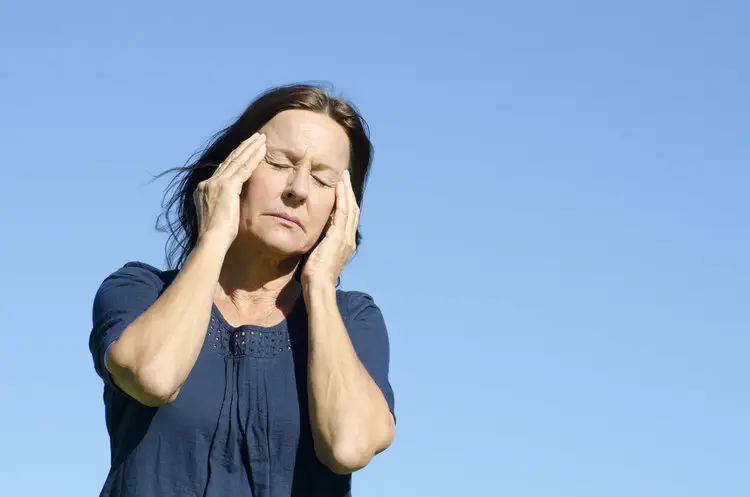Anyone who's seen a dentist knows how expensive it is!
Dental problems are not only related to oral health, but also to overall health. However, oral problems are widespread, affecting over 3.5 billion people worldwide, and require everyone's attention.
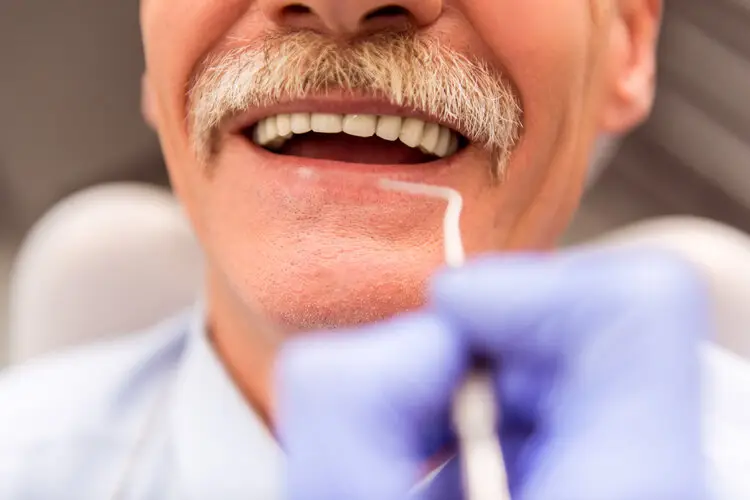
I. Do Teeth Determine Lifespan?
Our oral cavity is a bacterial environment. When problems like tooth decay and periodontitis develop, they can cause bad breath, toothaches, and other issues, and can also negatively impact other parts of the body.
Studies have found a correlation between oral diseases and cardiovascular disease, stroke, diabetes, and pneumonia.
Furthermore, missing teeth can have significant health consequences. When a tooth is missing, the adjacent teeth lack adequate support, causing them to shift, which can affect the entire mouth over time.
Missing teeth also impair normal chewing, preventing the body from absorbing adequate nutrients. This is increasingly associated with mortality rates from gastrointestinal cancers, heart disease, and stroke.
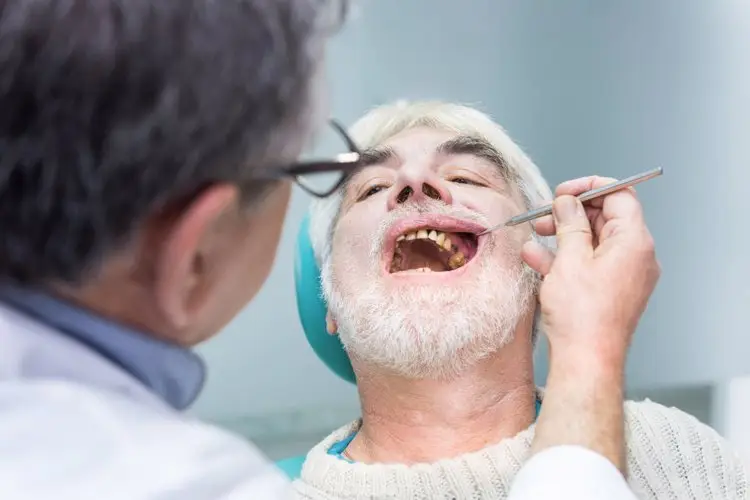
The World Health Organization has proposed the "8020" plan, which states that people aged 80 should still have at least 20 functioning teeth in their mouths.
A study found that for those aged 70 and older with more than 20 functioning teeth, the seven-year mortality risk is 22%; for those with 10-19 functioning teeth, the risk is 35%; for those with 1-9 functioning teeth, the risk is 50%; and for those with no functioning teeth, the risk rises to 70%.
Coincidentally, a Swiss survey of 10,000 middle-aged and elderly people worldwide found that those with healthy teeth had an average life expectancy of 11.7 years longer than those with missing teeth.
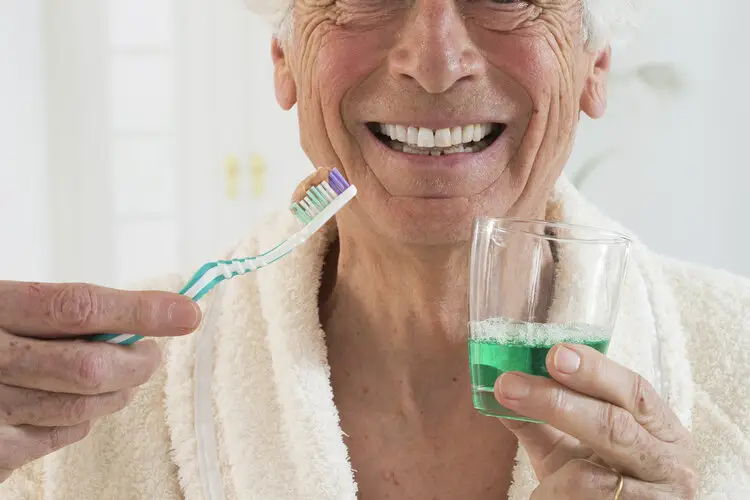
II. Which is more harmful: not brushing your teeth before bed or not brushing them in the morning?
Many people believe that tooth loss in old age is a normal part of aging. In fact, most tooth loss is caused by oral problems such as caries and periodontal disease. By proactively preventing and treating these diseases, you can maintain a healthy set of teeth even as you age.
Do you brush your teeth once a day, morning and evening? This is the most common practice.
A study published in a Nature journal suggests that the development of dementia is associated with poor dental care and dental disease. Irregular dental checkups increase the risk by 62%; brushing less than twice a day increases the risk by 60.1%; and having cavities increases the risk by 49%.

A study published in the journal Circulation indicates that the primary cause of periodontitis is Porphyromonas gingivalis, which can travel through the bloodstream to the left atrium and increase the risk of heart disease.
The most effective way to reduce the risk of periodontal disease is brushing your teeth. Brushing twice a day reduces the risk of cardiovascular disease by 13% compared to brushing less than once a day.
Dental plaque takes 12 hours to adhere to teeth, and can be removed within that time through mechanical friction with a toothbrush and the use of toothpaste.
Once plaque has been there for more than 24 hours, it will fully mature and form a complex microbial community. It's difficult to completely remove it with brushing, and it will gradually grow in the mouth, affecting oral health.
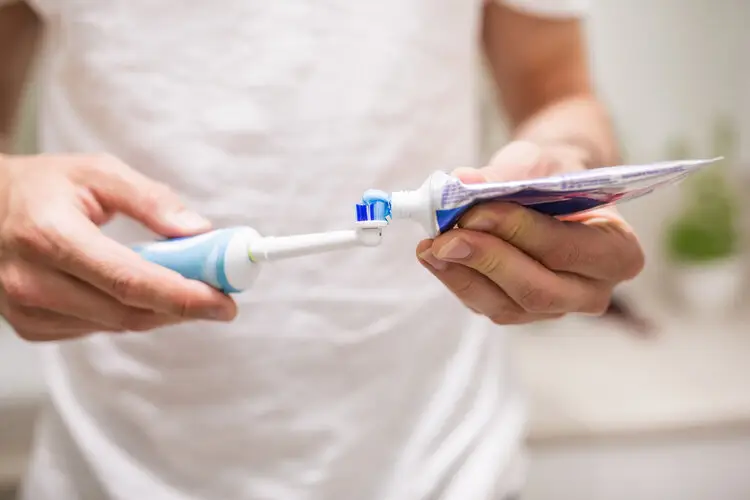
However, it's worth noting that brushing your teeth at night is even more important than brushing your teeth in the morning.
During sleep, the amount of saliva secreted in the mouth decreases significantly, making the oral environment more suitable for bacterial growth.
Does this mean that eating breakfast without brushing your teeth in the morning will be a mess?
It's not as terrible as you might think. If you eat without brushing your teeth in the morning, the plaque in your mouth will be swallowed with the food, and most of these bacteria will be destroyed by stomach acid. Most of these bacteria, especially those that help digest food, are beneficial.
But this doesn't mean you don't need to brush your teeth in the morning. After all, a large number of bacteria have grown in the mouth overnight. Prolonged contact between bacteria and teeth can form plaque on the surface, leading to tooth demineralization. There's no particular rule for brushing your teeth before or after meals, but it's essential to brush. Never skip it.
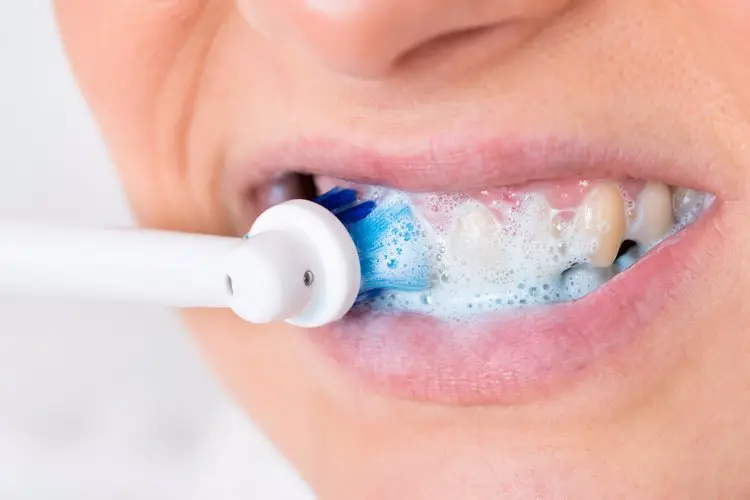
III. "Before bed" isn't the best time. Are you brushing correctly?
But brushing before bed isn't actually the best time!
The menthol in toothpaste may stimulate the trigeminal nerve in the brain, causing us to lose sleep and disrupting our ability to fall asleep.
Furthermore, the act of brushing can increase heart rate and body temperature, which can also affect sleep.
The most ideal time to brush your teeth is 30 to 60 minutes after dinner. Brushing during this time not only removes food debris from your teeth but also creates a relaxing pre-bedtime ritual.
Be careful not to brush your teeth immediately after a meal, as this acidifies the oral environment and dissolves minerals on your teeth. Brushing immediately removes these minerals, potentially affecting dental health.
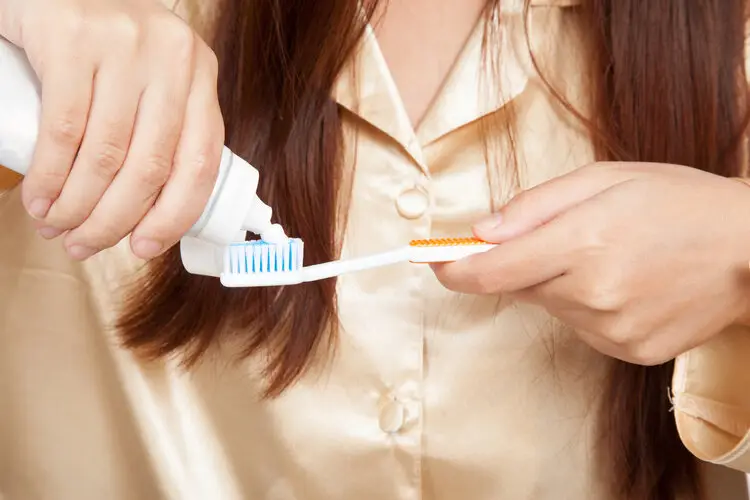
IV. Not brushing your teeth properly can actually shorten your lifespan! How should you brush?
A study of 500,000 people in China published in the European Journal of Clinical Investigation concluded that proper toothbrushing is crucial for health, and that not brushing regularly can negatively impact your lifespan. Compared to those who brush regularly, people who never or rarely brush their teeth have a 12% increased risk of major vascular events, an 8% increased risk of total stroke, an 18% increased risk of cerebral hemorrhage, and a 22% increased risk of cor pulmonale. Furthermore, not brushing your teeth increases the risk of all-cause mortality by 25%, cancer by 9%, and chronic obstructive pulmonary disease by 12%.
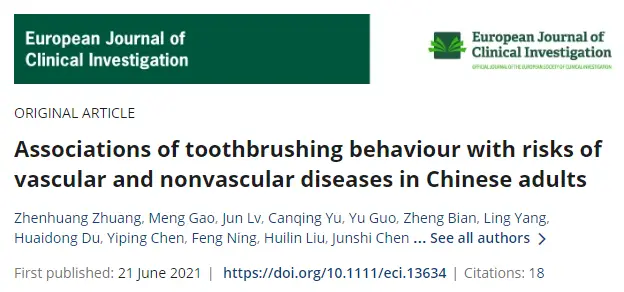
Click link >> https://doi.org/10.1111/eci.13634
Besides brushing your teeth, it's also important to brush them properly!
These details are crucial.
1. Don't brush too briefly.
Brush for at least three minutes each time to thoroughly clean your mouth.
2. Replace your toothbrush regularly.
Toothbrushes become "cracked" over time, easily harboring dirt and stains, which can damage teeth and gums. It's generally recommended to replace your toothbrush every three months.
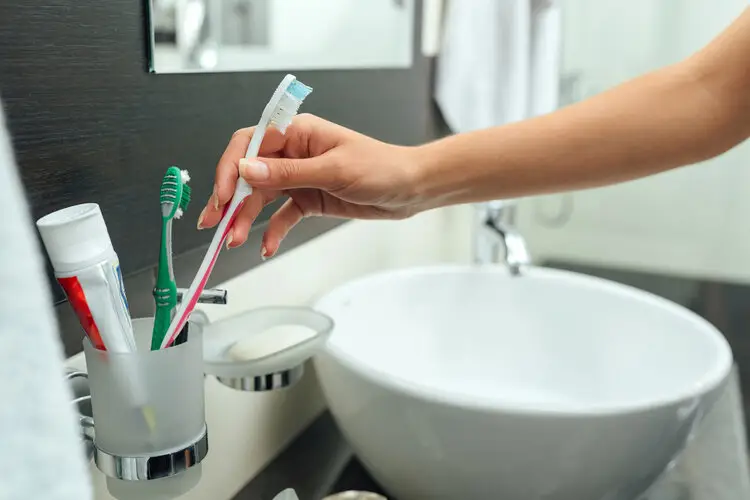
3. Avoid excessive pressure.
Teeth aren't as hard as we think, so be careful to control your pressure when brushing. Excessive pressure can damage teeth and cause bleeding and receding gums.
4. Don't just brush the tips of your teeth.
The area of your teeth that needs the most cleaning is actually the base near the gums. This area is prone to food debris and plaque buildup. If not cleaned thoroughly, tartar can form, leading to periodontal disease.
Dental health is crucial to overall health, so it's crucial to prioritize it. Even older people should pay attention; aging doesn't guarantee tooth loss!

%20--%3e%3c!DOCTYPE%20svg%20PUBLIC%20'-//W3C//DTD%20SVG%201.1//EN'%20'http://www.w3.org/Graphics/SVG/1.1/DTD/svg11.dtd'%3e%3csvg%20version='1.1'%20id='图层_1'%20xmlns='http://www.w3.org/2000/svg'%20xmlns:xlink='http://www.w3.org/1999/xlink'%20x='0px'%20y='0px'%20width='256px'%20height='256px'%20viewBox='0%200%20256%20256'%20enable-background='new%200%200%20256%20256'%20xml:space='preserve'%3e%3cpath%20fill='%23FFFFFF'%20d='M194.597,24.009h35.292l-77.094,88.082l90.697,119.881h-71.021l-55.607-72.668L53.229,232.01H17.92%20l82.469-94.227L13.349,24.009h72.813l50.286,66.45l58.148-66.469V24.009z%20M182.217,210.889h19.566L75.538,44.014H54.583%20L182.217,210.889z'/%3e%3c/svg%3e)


